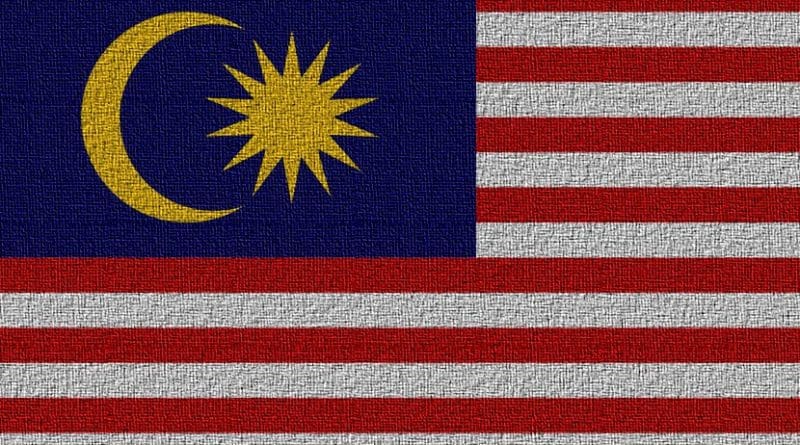Is Malaysia Ready For An Islamist Prime Minister? – Analysis
By RSIS
The call by PAS members for their party leader to be Prime Minister should the Pakatan Rakyat coalition win power at the next general election raises two questions: will it erode non-Malay support for the opposition coalition and will it change Malaysia’s foreign policy?
By Farish M Noor
THE RECENT General Assembly of the Pan-Malaysian Islamic Party PAS was notable in several aspects: There was less talk of theology or doctrine, but more focus on PAS’ upcoming campaign for the 13th general election that will be held anytime between December this year and next April. PAS, which came in third in terms of parliamentary seats won at the federal-level general election of March 2008, will be aiming to gain more parliamentary seats in the coming polls. The discussions at the just-concluded General Assembly were directed towards that goal.
That PAS would want to expand on its gains at the next general election is understandable, considering that the party – which was formed in 1951 – is the oldest opposition party in the country. Since 2004 however PAS has joined the Pakatan Rakyat coalition that comprises itself as well as PKR and DAP and is headed by its de facto leader Anwar Ibrahim, who also leads the much smaller PKR but is touted to be Prime Minister of a Pakatan government.
An Islamist as Prime Minister
An interesting feature of the General Assembly was the talk that PAS’ President Ustaz Hadi Awang ought to be foregrounded as the candidate for Prime Minister instead, should the Pakatan Rakyat coalition defeat the ruling Barisan Nasional government. This was met by strong approval by the delegates at the General Assembly, and signalled a shift in PAS’ posturing within the opposition coalition. Thus far, PAS has been willing to take the backseat in Pakatan’s campaign for power – on the assumption that Anwar Ibrahim would be the most likely candidate for Prime Minister should Pakatan win – on the grounds that he is most likely to be able to bridge the differences between the Malay-Muslim dominated PAS and the Malaysian-Chinese dominated DAP. The prospects of an Islamist as Prime Minister is something that has never been seriously contemplated until now (although a similar proposal was raised at the 2008 PAS general assembly).
Just why PAS members were keen to propose their leader as the next Prime Minister is an interesting question, coming so close to the upcoming general election. Firstly, there is the question of whether PAS’ membership of the Pakatan Rakyat coalition has cost PAS some of its votes and support from its traditional Malay-Muslim vote bank. Over the past five years the Pakatan coalition has had to address issues ranging from environmental politics to the welfare state which have not really been the focus of PAS over the past six decades.
Some PAS members feel that the party has veered off its Islamist path by its engagement with other issues. This was reflected in the criticism of the party’s newspaper Harakah by the party’s Youth Wing who argued that Harakah ought to serve the interests of the party first and foremost.
Electoral arithmetic
Secondly there is the question of simple arithmetic: If PAS was and remains the biggest party in the PAS-PKR-DAP coalition, then why should the leader of an opposition-led government come from one of the smaller parties? PAS members may feel that as the oldest and biggest party in the coalition they would have the right to lead the Pakatan and any government formed in its name. However this is contingent upon PAS winning its share of 40 parliamentary seats in the election.
Some PAS leaders confided that while the party members may be enthusiastic about having an Islamist Prime Minister, the country is not ready for it. This view is supported by UMNO leaders like Saifuddin Abdullah, who noted that “PAS has so far campaigned on things like the welfare state, and the DAP keeps saying that Anwar is their choice for Prime Minister. To have a PAS leader as PM is another matter.”
Talk of PAS members trying to push for an Islamist Prime Minister has so far been divisive. The opposition coalition has tried to maintain its cohesion by campaigning on broad-based issues such as a minimum wage programme and the welfare state, but many suspect that the non-Malay support for the opposition will erode if there is a real prospect of the country coming under the leadership of an Islamist leader instead. Within PAS itself there is probably disquiet over the loss of Malay-Muslim support, for which more Chinese support isn’t quite the solution.
Beyond the shores of Malaysia, the country’s neighbouring governments who have never had to deal with the prospect of a Malaysia under the leadership of Islamists, may be prompted to ask whether Malaysia’s foreign policy or defence policy will change as a result. In the 2000s PAS leaders were known more for their fiery anti-Western rhetoric and their protests against American intervention in Afghanistan and Iraq.
A decade on, the party seems to be closer to realising its domestic political goal, which may have implications for Malaysia’s regional standing and bilateral ties with other states. Much therefore depends on whether PAS manages to improve its parliamentary representation at the next general election, and whether it ends up being the party with the most parliamentary seats in the opposition coalition.
Dr. Farish A Noor is Senior Fellow at the Contemporary Islam Programme, S. Rajaratnam School of International Studies (RSIS), Nanyang Technological University.

